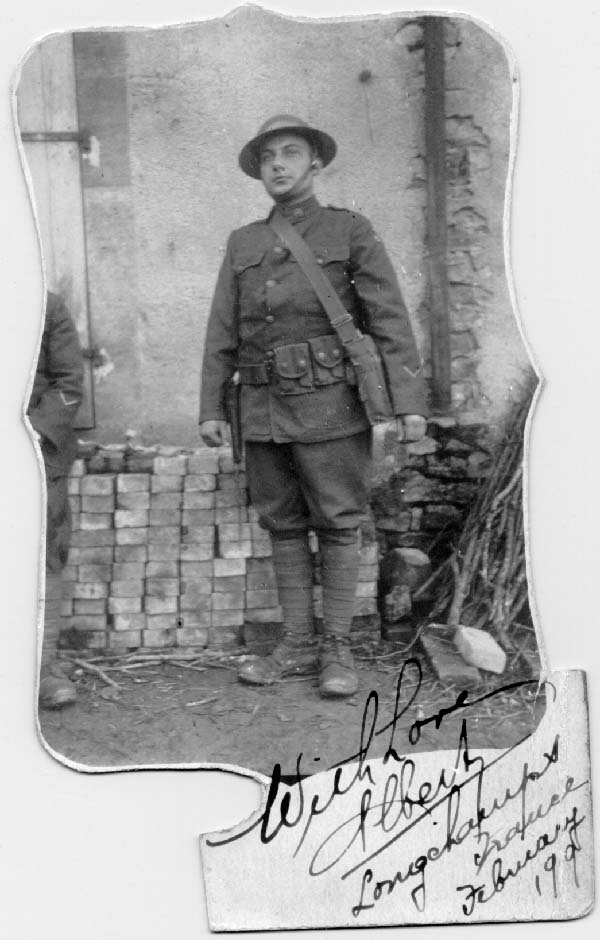 The first records of military naturalization began during World War I, when the Act of May 9, 1918 (40 Stat. 512) was enacted providing for the naturalization of alien soldiers at the various training and assembling points in the United States. During the years 1911 to 1920, a total of 244,300 soldiers were naturalized. Albert John Saridaki was among them.
The first records of military naturalization began during World War I, when the Act of May 9, 1918 (40 Stat. 512) was enacted providing for the naturalization of alien soldiers at the various training and assembling points in the United States. During the years 1911 to 1920, a total of 244,300 soldiers were naturalized. Albert John Saridaki was among them.
Albert’s US Military Registration is dated 5 June 1917. At that time he was working for the Bethlehem Steel Company in Bethlehem, Pennsylvania, USA. He had been in the US since 31 August 1912, and was 23 years old.
On 6 June 1918 he received his US Citizenship via the Act of May 9, 1918 at Camp Meade, Maryland. Men ages 21 - 31 were selectively drafted into the military starting on 27 June 1918. It is concluded that Albert volunteered for active duty in 1917.
The 79th Division, "Liberty" Division, also known as the "Lorraine" Division, was a National Army division established 5 August 1917 by the War Department to be formed at Camp Meade, Maryland. The Division was commanded by Maj. Gen. Joseph E. Kuhn. Draftees were from Pennsylvania and Maryland. Shrouded in secrecy, the Brigade left from Hoboken, New Jersey in July 1918 on the SS Leviathan, a speedy ex-German liner that arrived at Brest, France the morning of 15 July 1918. They trained for two months at Champ Little behind the French lines. On 26 September 1918 they "went over the top" in the Meuse-Argonne offensive. In a period of heartbreaking losses, the men struggled through nine kilometers of barbed wire and pot-marked earth. They destroyed German defenses that were said to be impregnable.
Albert occasionally spoke of his experience. He told of the soldier next to him being killed, and a piece of shrapnel striking his watch, which otherwise, would have wounded him. He also told of how they were fed in the trenches; loaves of bread where distributed by being dumped into the muddy trenches…they were happy to have something to eat.
Albert is on the Army Roles as an Interpreter. We believe he was with one of the infantry brigades as their interpreter. They had to work with a French Division which was on their flanks. The interpreters ran messages between the US and French units, which was the only way they had to know where every one was located. In reading memoirs about Runners, these fellows just carried 45's; out side of pigeons the only other communication was wire strung out for phones but was no good when on the move. The interpreters who were with the infantry were always armed; they were smaller men, generally educated and ‘a little crazy.’ Many were college educated, and just liked doing it. If you notice in Albert’s military photo, he is carrying a 45, and the condition of his boots does not support the idea that he was an interpreter in the headquarters company.
The 313th fought until the end of the war, 11 November 1918. Gen. John J. Pershing commended the men of the 79th Division, and especially the 313th Infantry Regiment whose forces penetrated deeper into enemy territory then any other outfit.
It was during the time between Armistice and the Regiment’s departure that Albert was able to travel to Paris to witness this brother, Pierre, play for Greece’s soccer team in the Inter-Allied Olympic Games in Pershing Stadium, Paris. It was one of his fondest memories.
Albert Saridaki
- Détails
- Écrit par dorothy